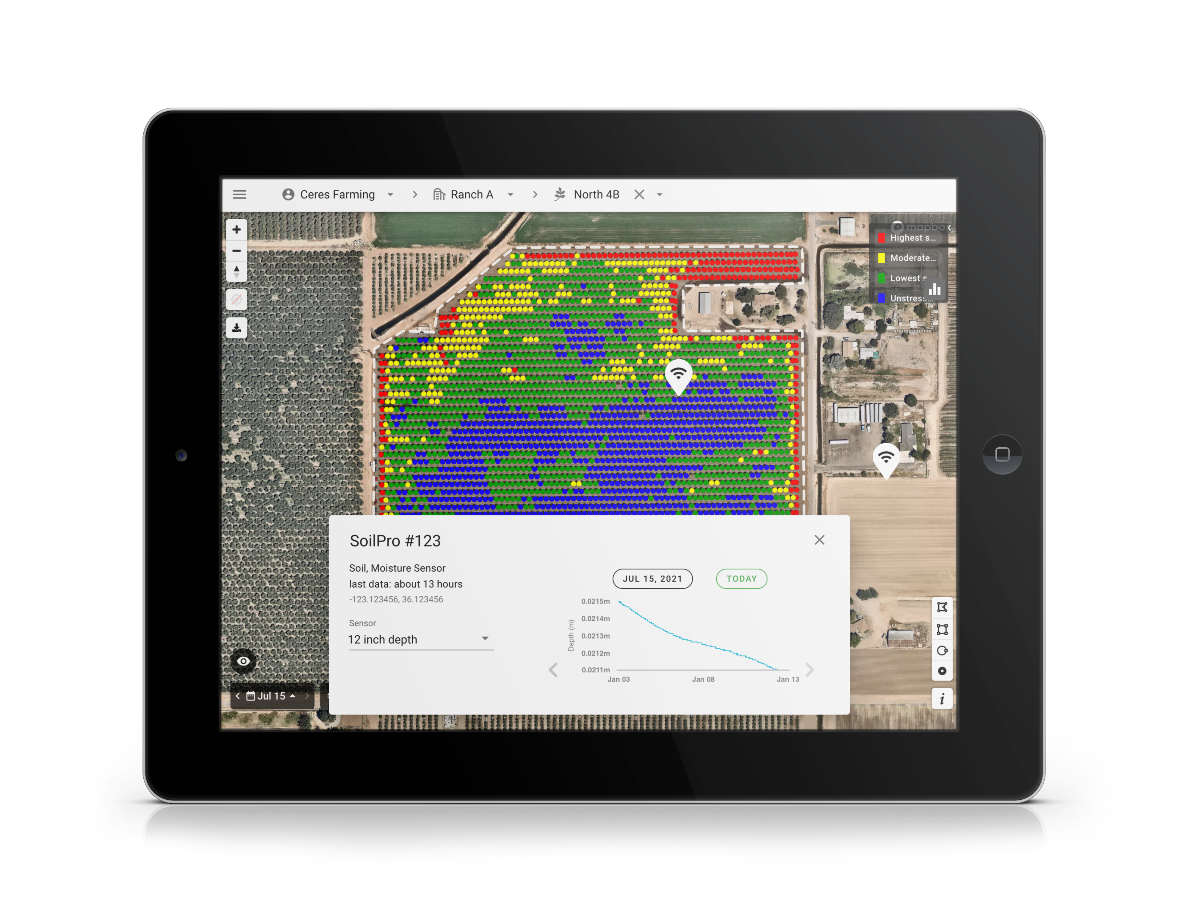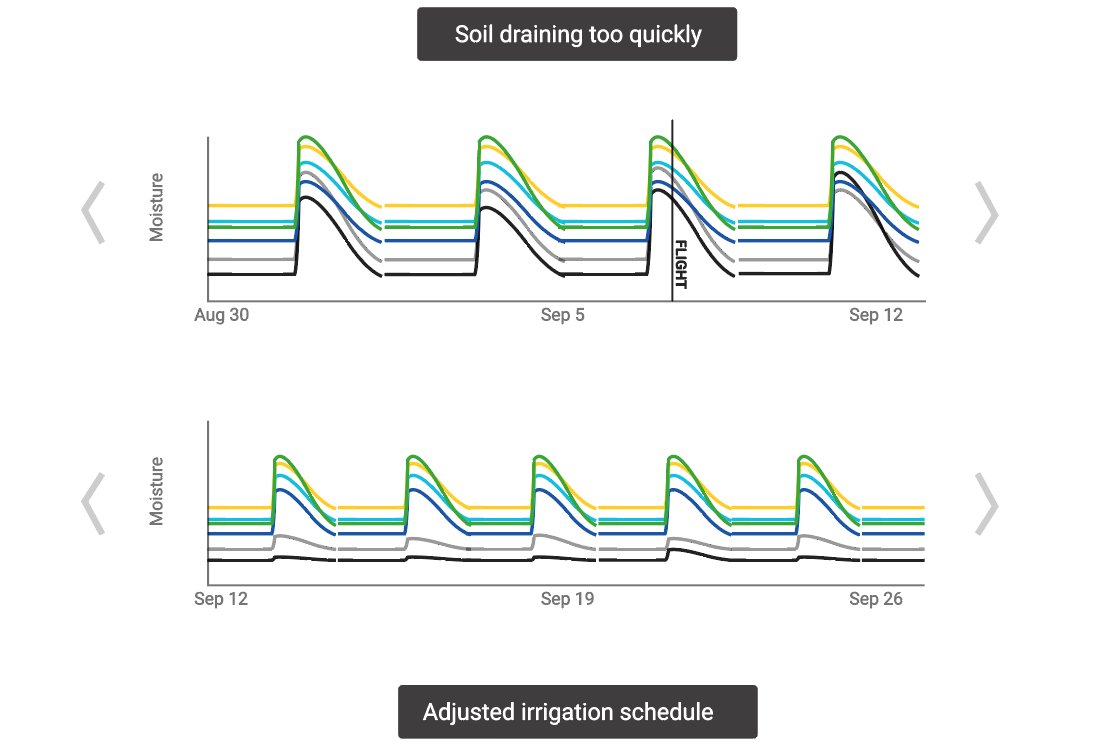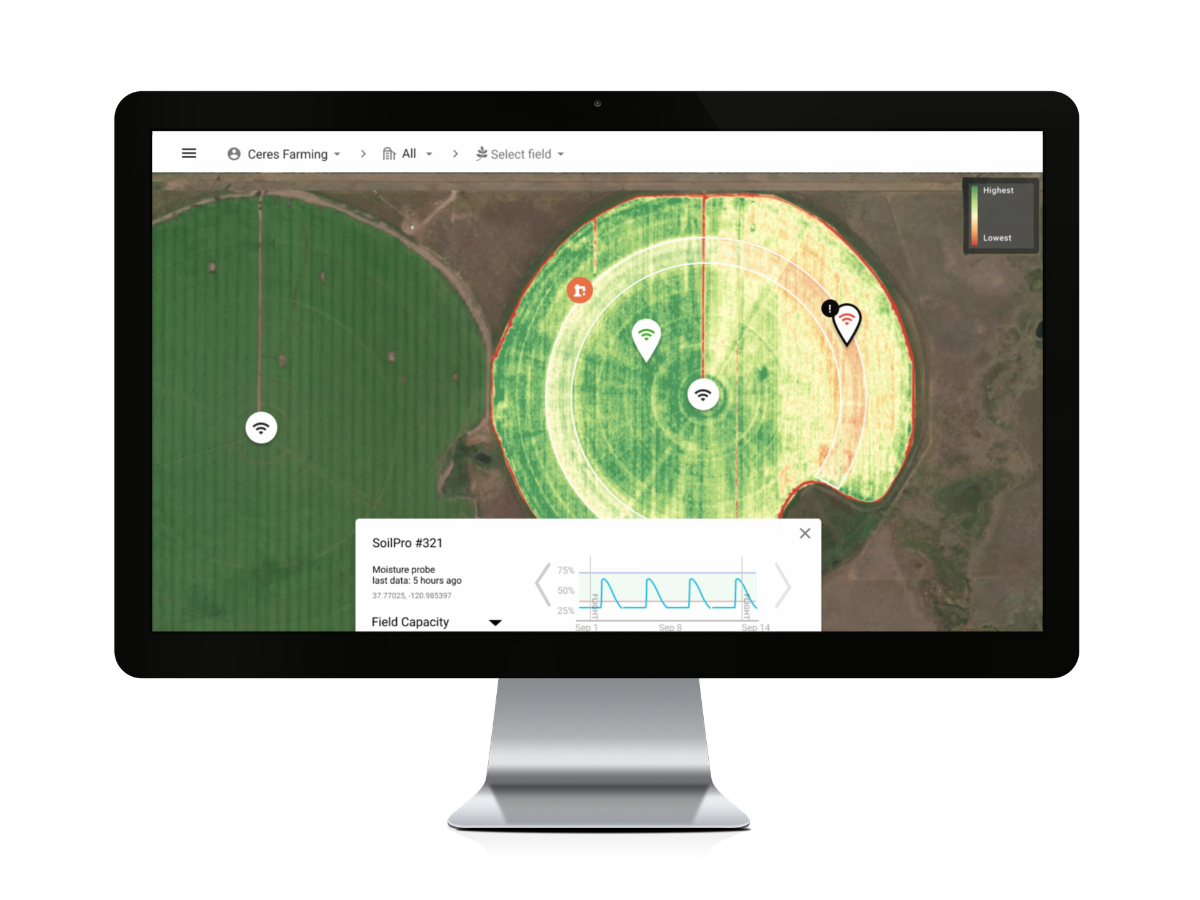Sensor integrations
Optimizing irrigation depends on seeing the full picture of variability across your operation. That’s why Ceres Imaging offers seamless integrations with the in-field sensors you already use—including moisture probes and weather stations. With your farm data in one place, it’s easier than ever to uncover opportunities to improve uniformity and make the best irrigation decisions for your business.

Common uses
- Combining aerial and in-field data for enhanced insights on crop health
- Simplifying workflows and reducing time spent switching between apps
- Ensuring optimal location and performance of in-field sensors

How it works
Aerial imagery provides precise data about crop health across your operation, while in-field sensors show real-time measurements for a single location. Ceres Imaging’s sensor integrations bring the two types of information together in a holistic view to streamline your daily decision-making and guide long-term strategy. You'll see your in-field sensor data alongside your aerial imagery, paired together in the Ceres app.

Integration partners
Ceres Imaging shows your aerial and in-field sensor data together, so you can save time and monitor your irrigation strategy all in one place. Our many integration partners include ProbeSchedule, Ranch Systems and WiseConn®—contact us for a complete list.
Ensuring accuracy
Ceres Imaging’s emphasis on quality begins even before we fly your fields.
Image capture
We capture imagery during peak daylight hours and under weather conditions that minimize distortion from shadows and cloud cover. Our highly sensitive, custom-built cameras detect minute changes in the multispectral range—allowing us to detect crop stress earlier than our competitors.
Processing and analysis
Imagery is geo-referenced and meticulously “masked” to ensure that only relevant information is evaluated. By making use of crop-specific data models and isolating the canopy from ground cover and other background noise, we prevent skewing of the data and enable a more accurate assessment of plant health.
Quality control
Imagery is assessed in-house by Ceres Imaging’s remote sensing experts, passing through multiple checkpoints before delivery in the Ceres Imaging app within 48 hours of the flight. Growers can access their data on a mobile device, tablet, or desktop computer.
More imagery and analytics
The difference between Ceres AI and other technologies I've used is the help I get from their expert team.
With Ceres AI we can take a more targeted approach to applying fertilizer and nutrients.
These flights can cover way more ground and provide more insight than a dozen soil moisture probes — and it's cheaper to implement.
The average Ceres AI conductance measurement from its imagery over the season has provided the best correlation with applied water.

